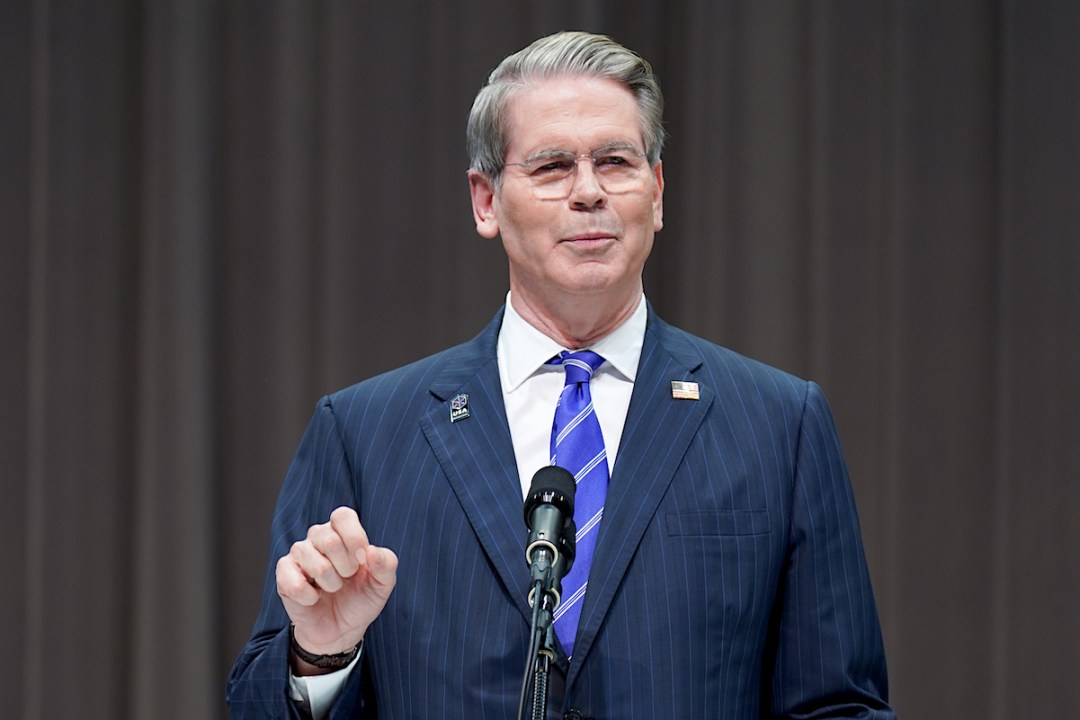Stockholm, Sweden
The United States and China have concluded two days of trade negotiations in Stockholm without reaching an agreement to extend the truce in their ongoing trade war. Shortly after the talks ended, US Treasury Secretary Scott Bessent, who led the American delegation, told reporters that any decision to extend the current 12 August deadline – at which point tariffs would revert to 34 per cent – rests solely with President Trump. A meeting between Trump and President Xi Jinping was not on the agenda.
The Chinese delegation said both sides had agreed to ‘push’ for such an extension. Bessent, along with Trump’s trade adviser Jamieson Greer, told me that three key issues continue to prevent serious progress.
The first is procedural. According to Bessent, the Chinese team is operating under such tight parameters that any suggestion of real progress requires them to pause negotiations to ‘call the mothership.’
The second sticking point is the set of tariffs aimed at curbing the import of Fentanyl produced in China into the US. China has shown a willingness, in principle, to take steps against the production of the chemicals used to manufacture the drug – but only if the US rolls back the tariffs first. The Americans, unsurprisingly, insist it must be the other way around.
The third issue concerns US objections to China becoming the buyer of 90 per cent of Iran’s oil, as well as supplying Russia with ‘dual use’ weapon technologies for the war in Ukraine.
If Trump opts not to extend the deadline, tariffs will ‘boomerang’ back to their April levels – a base rate of 34 per cent. However, market expectations suggest that Trump will approve an extension, which the Chinese are widely expected to accept. Bessent, in a later press conference, hinted that while these problems are serious they don’t within themselves make it unlikely that Trump will block an extension to the truce.
There did seem to be more progress on rare earth metals and magnets building on what had previously been agreed in meetings held in London. Greer told a group of reporters that the US had reached a point where ‘we never want to talk about them again.’ He added: ‘They blocked access to all their rare earth metals, and now we’re getting them.’
Nonetheless, the core American grievance remains unresolved. A significant portion of the ten hours of discussion were spent with both sides presenting data and claims about the strength of their respective economies. While the US can credibly point to recent economic performance, the same claim is harder for China to make.
This economic education reflects Washington’s broader argument. As Bessent put it: ‘China is the most unbalanced economy in modern times… Certainly never seen since the British Empire.’
The Treasury Secretary struck a tone of slow but steady progress: ‘London built on Geneva, Stockholm built on London and Geneva,’ he said. In practical terms, however, nothing new was announced – and as ever, all eyes now turn to Trump.









Comments